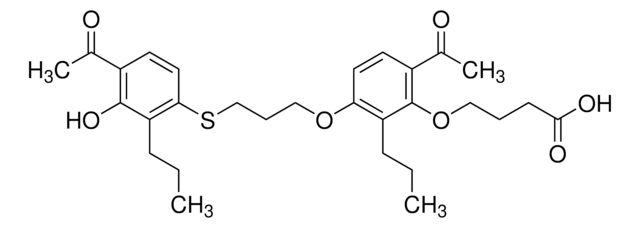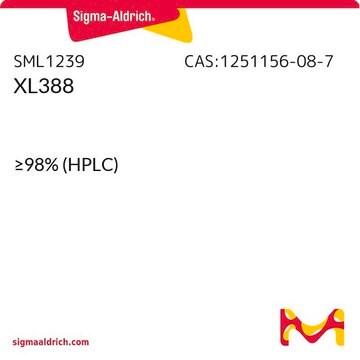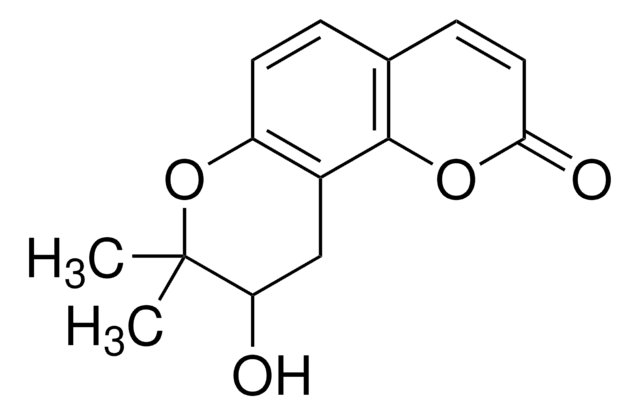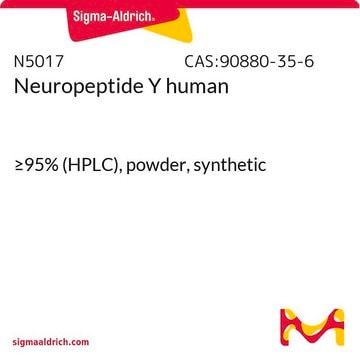A7106
Azelnidipine
≥98% (HPLC), powder
Synonym(s):
2-Amino-1,4-dihydro-6-methyl-4-(3 nitrophenyl)-3,5-pyridinedicarboxylic acid 3-[1-(diphenylmethyl)-3-azetidinyl] 5-(1-methylethyl) ester, CS-905, RS-9054
About This Item
Recommended Products
Quality Level
Assay
≥98% (HPLC)
form
powder
solubility
DMSO: >10 mg/mL
originator
Daiichi-Sankyo
storage temp.
room temp
SMILES string
CC(C)OC(=O)C1=C(C)NC(N)=C(C1c2cccc(c2)[N+]([O-])=O)C(=O)OC3CN(C3)C(c4ccccc4)c5ccccc5
InChI
1S/C33H34N4O6/c1-20(2)42-32(38)27-21(3)35-31(34)29(28(27)24-15-10-16-25(17-24)37(40)41)33(39)43-26-18-36(19-26)30(22-11-6-4-7-12-22)23-13-8-5-9-14-23/h4-17,20,26,28,30,35H,18-19,34H2,1-3H3
InChI key
ZKFQEACEUNWPMT-UHFFFAOYSA-N
Application
Biochem/physiol Actions
Features and Benefits
Signal Word
Danger
Hazard Statements
Precautionary Statements
Hazard Classifications
Acute Tox. 4 Oral - Eye Dam. 1
Storage Class Code
11 - Combustible Solids
WGK
WGK 3
Flash Point(F)
Not applicable
Flash Point(C)
Not applicable
Personal Protective Equipment
Choose from one of the most recent versions:
Certificates of Analysis (COA)
Don't see the Right Version?
If you require a particular version, you can look up a specific certificate by the Lot or Batch number.
Already Own This Product?
Find documentation for the products that you have recently purchased in the Document Library.
Articles
We offers many products related to calcium channels for your research needs.
We offers many products related to calcium channels for your research needs.
We offers many products related to calcium channels for your research needs.
We offers many products related to calcium channels for your research needs.
Our team of scientists has experience in all areas of research including Life Science, Material Science, Chemical Synthesis, Chromatography, Analytical and many others.
Contact Technical Service










